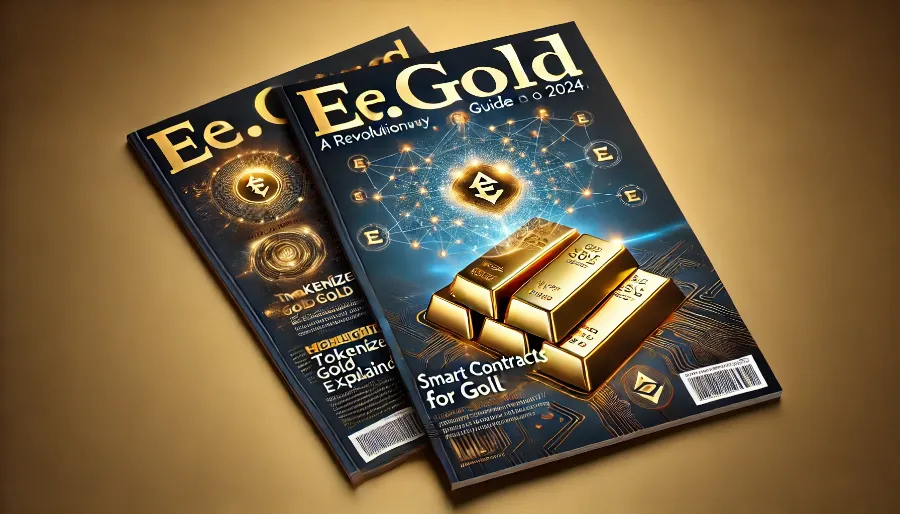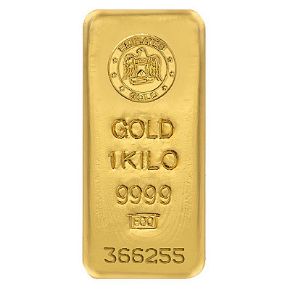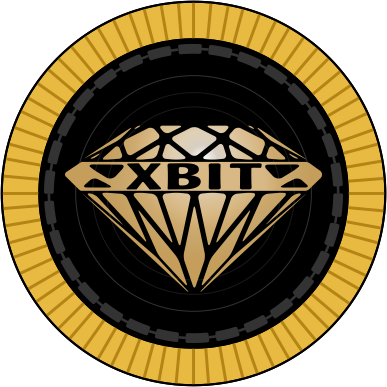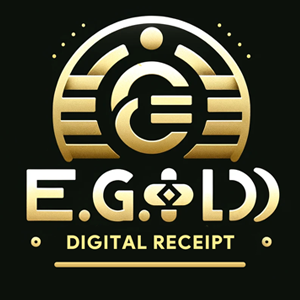
Table of Contents
- Smart Contracts Explained: What They Are and Their Purpose
- How Smart Contracts Operate: A Simple Breakdown
- Using Smart Contracts in Gold Investment Strategies
- Advantages of Smart Contracts for Gold Investors
- Challenges and Potential Risks of Smart Contract Adoption
- Real-World Applications of Smart Contracts in Gold Trading
- Blockchain’s Role in Modernizing Gold Investments
- Ensuring Security and Transparency with Smart Contracts
- Gold Tokenization: Bridging Assets with Technology
- Top Platforms Supporting Smart Contracts for Gold Investments
- Regulatory Challenges and Considerations for Smart Contracts
- Environmental Impact of Smart Contracts in Gold Investments
- Traditional vs. Smart Contract-Based Gold Investments: A Comparison
- Predictions for Smart Contract Adoption in Gold Investments by 2025
- Frequently Asked Questions About Gold Investments and Smart Contracts
Smart Contracts Explained: What They Are and Their Purpose
Smart contracts are self-executing contracts where the terms of the agreement are directly written into code. Operating on blockchain technology, they automatically enforce or execute actions when predefined conditions are met, without the need for intermediaries.
How Smart Contracts Operate: A Simple Breakdown
Smart contracts use blockchain platforms like Ethereum to execute automated actions. For example, a smart contract might transfer gold ownership when a payment is confirmed, ensuring security, speed, and transparency in transactions. The decentralized nature of blockchain minimizes errors and fraud.
Using Smart Contracts in Gold Investment Strategies
The integration of smart contracts in gold investments involves tokenizing gold into digital assets represented on a blockchain. Investors can buy, sell, or trade these tokens, with smart contracts ensuring the execution of all transactions based on predefined rules.
Advantages of Smart Contracts for Gold Investors
- Transparency: Transactions are recorded on a public ledger, ensuring full transparency.
- Efficiency: Automated processes reduce transaction times and administrative costs.
- Security: Blockchain’s decentralized nature protects against fraud and hacking.
- Accessibility: Investors can trade gold digitally, bypassing geographical limitations.
- Liquidity: Tokenized gold offers easier trading opportunities, even in fractional amounts.
Challenges and Potential Risks of Smart Contract Adoption
- Regulatory Issues: Varying global regulations on blockchain and gold trading.
- Technical Vulnerabilities: Poorly coded smart contracts can be exploited.
- Adoption Barriers: Lack of widespread understanding and acceptance.
- Dependence on Technology: Requires reliable internet and blockchain infrastructure.
Real-World Applications of Smart Contracts in Gold Trading
- Automated Gold Trading: Platforms use smart contracts to instantly settle trades.
- Gold-backed Stablecoins: Cryptocurrencies backed by gold ensure price stability.
- Supply Chain Tracking: Smart contracts ensure transparency in gold mining and distribution.
The Role of Blockchain in Gold Investments
Blockchain serves as the foundation for smart contracts, providing a decentralized, immutable ledger to track gold ownership, ensure accurate transactions, and prevent double-spending.
Security and Transparency in Smart Contracts
Smart contracts offer enhanced security with tamper-proof transaction records. They eliminate human error and enhance trust by making all transactions verifiable on the blockchain.
Tokenization of Gold Assets
Gold tokenization converts physical gold into digital tokens, allowing for seamless trading and investment. Each token represents a specific amount of gold stored securely, often in certified vaults.
Popular Platforms Supporting Smart Contracts for Gold
- Ethereum: The most widely used platform for developing smart contracts.
- Binance Smart Chain: Offers low fees and high efficiency.
- Avalanche: Known for its speed and scalability.
- Solana: Ideal for high-volume transactions with low fees.
Regulatory Considerations
Investors must comply with regulations governing gold and blockchain. This includes anti-money laundering (AML) and know-your-customer (KYC) policies to ensure legal compliance.
Environmental Impacts
Blockchain technology, particularly proof-of-work systems, has a high energy demand. However, newer protocols like proof-of-stake (used by Ethereum 2.0) are reducing the environmental footprint.
Traditional vs. Smart Contract-Based Gold Investments: A Comparison
| Aspect | Traditional Gold Investment | Smart Contract-Based Investment |
|---|---|---|
| Accessibility | Limited to physical markets or brokers | Accessible globally through digital platforms |
| Transparency | Opaque processes | Fully transparent transactions |
| Security | Risk of theft or fraud | Secured by blockchain technology |
| Liquidity | Limited liquidity | High liquidity, even for fractional investments |
Predictions for Smart Contract Adoption in Gold Investments by 2025
The adoption of smart contracts in gold investments is expected to grow as blockchain technology matures. Innovations like gold-backed tokens, decentralized gold exchanges, and improved regulatory frameworks are likely to drive mainstream acceptance.
Frequently Asked Questions About Gold Investments and Smart Contracts
1. What are smart contracts used for in gold investments?
Smart contracts automate gold trading, ownership transfers, and supply chain tracking.
2. How does tokenization work for gold?
Tokenization involves representing physical gold as digital tokens on a blockchain, simplifying trading and ownership.
3. Are smart contracts secure?
Yes, when properly coded, smart contracts are secure and operate on tamper-proof blockchain technology.
4. Can I invest in gold using cryptocurrency?
Yes, platforms using smart contracts enable gold purchases with cryptocurrencies.
5. What are gold-backed stablecoins?
Gold-backed stablecoins are cryptocurrencies tied to the value of gold, ensuring price stability.
6. What is the environmental impact of using blockchain for gold investments?
Energy-intensive blockchain systems can have a high environmental impact, but newer protocols like proof-of-stake reduce energy consumption.
7. How do smart contracts improve transparency?
All transactions executed by smart contracts are recorded on a public blockchain, ensuring full traceability and accountability.
8. Are there risks associated with smart contracts?
Yes, risks include poorly coded contracts, regulatory uncertainties, and technical vulnerabilities.
9. What are the benefits of tokenized gold?
Tokenized gold offers greater accessibility, liquidity, and transparency compared to traditional gold investment methods.
10. Is smart contract-based gold investment legal?
Legality depends on the jurisdiction. It’s essential to comply with local regulations regarding blockchain and gold trading.
11. What platforms support smart contract-based gold investments?
Platforms like Ethereum, Binance Smart Chain, and Avalanche are popular for hosting smart contracts that facilitate gold investments. Additionally, some dedicated platforms offer gold tokenization services.
12. Can I trade fractional amounts of gold with smart contracts?
Yes, tokenized gold allows you to trade fractional amounts, making gold investment more accessible to a broader audience.
13. How do smart contracts reduce costs in gold investments?
Smart contracts eliminate the need for intermediaries like brokers or escrow services, reducing transaction fees and administrative costs.
14. Can smart contracts be hacked?
While blockchain technology is secure, poorly coded smart contracts may have vulnerabilities that can be exploited. It’s crucial to use well-audited smart contract systems.
15. How do smart contracts ensure compliance with regulations?
Smart contracts can be programmed to enforce compliance with AML, KYC, and other regulatory requirements, automating these processes for all participants.
16. Are gold-backed tokens redeemable for physical gold?
In most cases, gold-backed tokens can be redeemed for physical gold, depending on the terms set by the issuing platform.
17. Can smart contracts track the origin of gold?
Yes, smart contracts can be integrated with blockchain systems to trace the source of gold, ensuring ethical sourcing and compliance with industry standards.
18. How does staking work with gold-backed tokens?
Some platforms allow investors to stake gold-backed tokens to earn additional rewards, similar to staking cryptocurrencies on blockchain networks.
19. Can smart contracts help with gold loans?
Yes, smart contracts can be used to automate gold-backed loans, ensuring efficient collateral management and repayment terms.
20. What are the future innovations expected in this space?
Future developments include decentralized exchanges for gold, enhanced scalability of blockchain systems, and seamless integration of gold investments with other digital asset ecosystems.
Smart contracts are transforming gold investments by bringing transparency, efficiency, and accessibility to an age-old asset class. As blockchain technology evolves, these innovations promise to unlock new opportunities for both individual and institutional investors, ensuring a seamless and secure investment experience.
NOTE
This Content is the copyrighted content of EE.GOLD. All rights are reserved. You are welcome to share or use our content only by including direct links to our website. Any other form of reproduction, distribution, or use without proper attribution is strictly prohibited.
This Content is intended solely for educational purposes. The information provided does not constitute financial or investment advice.
Please note that Digital Storage Receipt, Secure Storage Solutions, and Physical Gold Sales are the only services offered by EE.GOLD.
We strictly adhere to government regulations and are firmly against all illegal financial or investment activities globally.
For further inquiries, feel free to contact us through our official channels.










.png)

